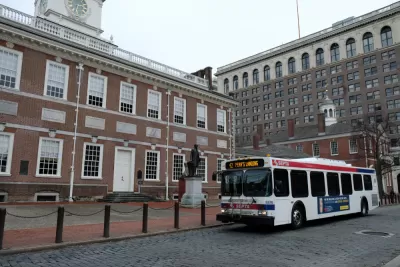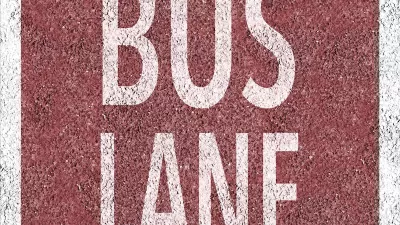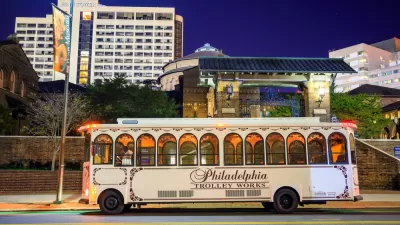Philadelphia’s transit agency faces some structural challenges as it struggles to reorganize its services and bring back ridership.

At a hearing on Monday, Philadelphia’s city council will discuss the proposed changes to Southeastern Pennsylvania Transportation Authority’s (SEPTA) bus routes, which manages public transit in the city and beyond. Matt Sullivan reports on the story for the Philadelphia Inquirer.
According to Sullivan, “Much of what is possible is going to depend on developing and funding bold plans to increase SEPTA’s ridership, and that means pressing for improvements systemwide.” Beyond bus route adjustments, “it’s crucial that agency management reexamine its professional standards for outside contractors, become a better partner with its own workforce, and firm up its shaky commitment to transit equity.” Sullivan describes the agency’s troubled partnership with its Key Card contractor, as well as its history of labor disputes. “Just as the agency should be pressed to do better by riders, it should be pressed to do better by its workforce,” Sullivan writes.
Additionally, “SEPTA management must commit itself fully to transit equity, ensuring all communities have access to great public transport that gets them where they need to go.” Sullivan suggests starting with an end to transfer fees, which impact low-income riders the most. “It’s no mystery which transit riders live in West Philly, North Philly, and along Kensington Avenue, and the Pew study makes it clear that the fare structure amounts to de facto discrimination.”
FULL STORY: SEPTA’s issues go deeper than Bus Revolution

Planetizen Federal Action Tracker
A weekly monitor of how Trump’s orders and actions are impacting planners and planning in America.

Map: Where Senate Republicans Want to Sell Your Public Lands
For public land advocates, the Senate Republicans’ proposal to sell millions of acres of public land in the West is “the biggest fight of their careers.”

Restaurant Patios Were a Pandemic Win — Why Were They so Hard to Keep?
Social distancing requirements and changes in travel patterns prompted cities to pilot new uses for street and sidewalk space. Then it got complicated.

Platform Pilsner: Vancouver Transit Agency Releases... a Beer?
TransLink will receive a portion of every sale of the four-pack.

Toronto Weighs Cheaper Transit, Parking Hikes for Major Events
Special event rates would take effect during large festivals, sports games and concerts to ‘discourage driving, manage congestion and free up space for transit.”

Berlin to Consider Car-Free Zone Larger Than Manhattan
The area bound by the 22-mile Ringbahn would still allow 12 uses of a private automobile per year per person, and several other exemptions.
Urban Design for Planners 1: Software Tools
This six-course series explores essential urban design concepts using open source software and equips planners with the tools they need to participate fully in the urban design process.
Planning for Universal Design
Learn the tools for implementing Universal Design in planning regulations.
Heyer Gruel & Associates PA
JM Goldson LLC
Custer County Colorado
City of Camden Redevelopment Agency
City of Astoria
Transportation Research & Education Center (TREC) at Portland State University
Camden Redevelopment Agency
City of Claremont
Municipality of Princeton (NJ)





























